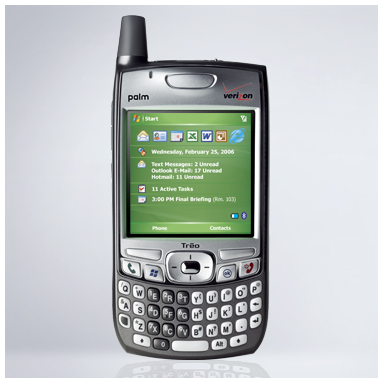 I know that FCC regulations sounds like a boring topic for a post, but so I’ll make this short and sweet, and tell you why you should care.
I know that FCC regulations sounds like a boring topic for a post, but so I’ll make this short and sweet, and tell you why you should care.
Some background first. Come February 2009, all television transmissions must be digital. What this means is that BROADCAST television (you know, the kind where you need antennae and "rabbit ears") will cease to exist.
And THAT means that there suddenly will become available lots of FREQUENCIES — a 700 megahertz wide spectrum — on which to broadcast. These are, literally, the "public airwaves", and they are regulated by the Federal Communications Commission. (They have to regulate it because, obviously, if two radio or TV transmitters use the same frequency, then you get garbage on your radio or TV).
So who wants these frequencies? Well, wireless phone companies mostly. So, the FCC has decided to auction them off. Or, at least, that’s the proposal.
Another aspect of the proposal is to reserve some of that bandwidth for emergency services. A smart thing. One of the problems that hampered the 9/11 rescue efforts was all the cross-chatter between various rescue personnel (fire, police, paramedics) as they all tried to broadcast on the same frequency. So that problem should go away, as these newly-available frequencies become reserved for more emergency services.
But here’s why you should really care…
Another aspect of the FCC proposal is that, in exchange for all this new bandwidth, the wireless communication providers have to allow for "open access".
See, the way it is today, your phone and your service are connected. If you have, say, Verizon, you have to get a Verizon-compatible phone (usually from a Verizon vender). And if you have a Verizon phone but want to switch to Suncom, then you have to get a Suncom phone.
And, as we all know, if you want to buy an iPhone, then you MUST use AT&T service.
"Open access" does away with all that. Your phone will become transferrable to ANY wireless service, and vice versa. Also, any software (like ringtones) that is developed for one phone must work on all phones designed with that feature.
Another benefit to having more bandwidth is that it will spur on competition for wireless phone rates, bringing down the cost you pay. And of course, with more bandwidth that is available, we won’t have to play the "can you hear me now" game so much.
Better service, lower prices. So, all said, this is a good thing for consumers.
Keep your eye on this story. The "auction" won’t happen for a few months, and Google is going to be a major player in this. Yup, your phone service might be Google in 2009 — who knows?

